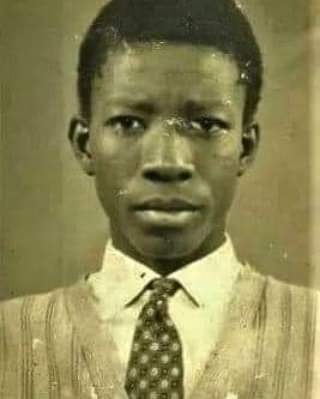
With the greatest of respect sir, you have shown an unprecedented, unpardonable and irredeemable level of ignorance and naivety on leaderless protests. Learned Doctor, if you had done little research, you would have seen that leaderless protest is an emerging political concept.
https://twitter.com/DrCOmole/status/1317245205997912065
Dear @DCOmole,
For many of the protests taking place around the world, the lack of an appointed leader is deliberate.
Sir, around the world, leaderless protest movements have emerged, drawing tens of thousands (and, in some cases, millions) of people to the streets.
For many of the protests taking place around the world, the lack of an appointed leader is deliberate.
Sir, around the world, leaderless protest movements have emerged, drawing tens of thousands (and, in some cases, millions) of people to the streets.
Dear @DrCOmole,
Though their catalysts vary, leaderless protests have largely looked the same: From Hong Kong and Chile to Iraq and Lebanon, people have utilized social media and the streets to whip up spontaneous, mostly nonviolent grassroots
Though their catalysts vary, leaderless protests have largely looked the same: From Hong Kong and Chile to Iraq and Lebanon, people have utilized social media and the streets to whip up spontaneous, mostly nonviolent grassroots
demonstrations against their respective govts — efforts they have vowed to sustain until all their demands are met. In the circumstance, the need to even talk does not even arise, since the @PoliceNG is still killing innocent peaceful protesters. Police brutality is still there.
Dear @DrCOmole,
Without a clear organiser or leader at the helm of leaderless protests, protesters stand firm and focused, given the particular nature of the Nigerian situation. The #RevolutionNow protest of @YeleSowore had a leader and was easy to crack down.
Without a clear organiser or leader at the helm of leaderless protests, protesters stand firm and focused, given the particular nature of the Nigerian situation. The #RevolutionNow protest of @YeleSowore had a leader and was easy to crack down.
There is also the issue of avoiding a repeat of the 2012, 2014 and 2019 situations, birthed by protests that had leaders. The #EndSARS protest is an evolving one, that sprung from the consciousness and frailties of the past.
Respectfully sir, in Chile, leaderless protests have focused on inequality and corruption.
In Lebanon and Iraq, leaderless protests against the countries’ political systems have transcended sectarian lines.
It has been successful so far.
In Lebanon and Iraq, leaderless protests against the countries’ political systems have transcended sectarian lines.
It has been successful so far.
Sir, in Hong Kong, pro-democracy movement is in its 6th month, driven by leaderless protests and widespread concerns about the city’s semiautonomous status.
Leaderless protests don’t appeal to traditional trends. They appeal to the entirety of the citizenry.
Leaderless protests don’t appeal to traditional trends. They appeal to the entirety of the citizenry.
Dear @DrCOmole,
Sir, I suggest that you read the book by Carne Ross THE LEADERLESS REVOLUTION: HOW ORDINARY PEOPLE WILL TAKE POWER AND CHANGE POLITICS IN THE 21ST CENTURY.
He is the executive director of Independent Diplomat, a diplomatic advisory group.
Sir, I suggest that you read the book by Carne Ross THE LEADERLESS REVOLUTION: HOW ORDINARY PEOPLE WILL TAKE POWER AND CHANGE POLITICS IN THE 21ST CENTURY.
He is the executive director of Independent Diplomat, a diplomatic advisory group.
Sir, after all, appointing leaders makes it easier for governments to focus on them, to pick them off, to arrest them, kill them, or denigrate them.
Leaderless protests, conversely, are more difficult to repress.
People are trying to avoid brown envelop stories.
Leaderless protests, conversely, are more difficult to repress.
People are trying to avoid brown envelop stories.
Bruce Lee’s is reported to have said “Be formless, shapeless, like water”. This is the nature and character of the #EndSARS protest in Nigeria. Therefore, it is most uncharitable a comment, to say that #EndSARS protesters are naive because they do not have a 'leader'.
End!
End!
• • •
Missing some Tweet in this thread? You can try to
force a refresh



